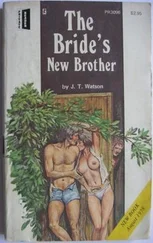THE HEAVEN OF MERCURY
Brad Watson
PHOTOGRAPH OF MY GRANDMOTHER
My maternal grandmother, Margaret Maria (Maggie) Wells Watson, known to her grandchildren as Mimi, was married at sixteen — too young to know any better, according to her lights. My grandfather, a determined and persuasive young shoe salesman, had almost bullied her into marrying him, she said. A year into the marriage, this girl, who’d never been more than kissed on the cheek before her wedding night, was pregnant with her first child, my aunt Marjory. Mimi used to say her childhood just vanished.
I was always fascinated by Mimi, who lived to be ninety-three, and her hilarious stories. She told them in a disjointed, lighthearted, rambling fashion, punctuating them with gems such as the time I asked how she felt about my grandfather’s infidelity (like his father, apparently, he got around), and she replied, “Well, it hurt, you know. But at least it kept him off of me.”
She hadn’t really wanted to marry at all, didn’t want to have children, not as young as she did, anyway. She couldn’t stand the Watsons, her in-laws. Earl’s father, an insurance salesman, was a reputed womanizer who’d killed his brother-in-law in a fight many years past; he spent two years in the penitentiary for manslaughter. He carried a little pearl-handled pistol in his jacket pocket until the day he died. Earl’s siblings were always envious of him, especially his brother Klein, with whom Earl fought all the time, sometimes in the house. Mimi said Klein would storm in, raging, and Earl would leap up from the table, and they’d be whaling at each other in the living room. Her sisters-in-law were catty to her and insulted her all the time, took advantage of her, disparaged her character behind her back. According to Mimi, she was plagued by these people. Sometime late in her life, Earl’s sister Myrtle wrote a novel (unpublished), a good portion of which was devoted to disparaging her sister-in-law, Mimi.

When Earl died of a heart attack in 1955, he left a wholly dependent wife who’d never worked a job, and a son (my father) he hadn’t bothered to teach the business. Then someone began to mail her letters made of words cut from magazine headlines, accusing her of poisoning Earl. The letters threatened an exhumation and autopsy. “THE TRUTH WILL OUT!” one said. Mimi knew these letters came from Klein and his wife because Klein was furious that Earl hadn’t left him a share in his two shoe stores. She was traumatized and embarrassed by these things, but nothing ever came of them. “Well, you know they’re just crazy, Maggie!” her friends would say.
Only after Mimi’s death in 1995 did I see this photograph, taken sometime in the mid-to late 1920s. I was trying to begin work on a novel that would become The Heaven of Mercury , and I had a vague idea that my grandmother could be the model for a main character, Birdie Wells Urquhart. But the book gave me fits, and I wrote the rough drafts of two other books in the meantime, just trying to avoid this one. I was finding it almost impossible to invent a story about someone who had been such a strong presence in my life, and so much herself, as an old person. I struggled to see her as a girl, flirting with boys, being desired by boys and men. This photograph, showing my grandmother in something like a flapper’s dress, looking quite flirtatious as she leans coyly against the fancy car (no doubt my grandfather’s — he had a weakness for new automobiles), allowed something of her old lady veneer to crack a little, and I began to imagine her life in a way I hadn’t been able to before. And I began to weave some of her stories into a narrative, to elaborate upon them, and to invent others.
I also began more freely inventing things about characters based on other people in her life. I knew little about Mimi’s housemaid of some fifty years, Velma Hubbard, but the woman was very sweet and kind, generous of spirit, and very rooted in the old ways of the racist South; I never could get her to stop calling me Mr. Brad. She and my grandmother were always arguing, bickering over little household things — they both got cantankerous in their old age. My grandmother fired Velma several times; Velma would simply let herself in the next morning with her key.
The character invented to become Birdie Urquhart’s unrequited lover (Finus Bates) in the novel has no model, aside from sharing certain crotchety characteristics with me (I am not such an old man but act like one). So I was surprised when, after the book was done, my mother said there was a man who used to visit Mimi, and who cared enough about her to sit by her bedside when she was ill with various ailments. Mom didn’t know if the man was in love with Mimi or not, but she wondered, even suspected he was. I was astounded: It almost seemed like life imitating fiction.
I don’t think Mimi would mind my using her life as inspiration for a novel. She might tell me I got some things wrong, but she’d understand I was making those things up. She’d say she didn’t want the facts, they were so awful, or that things weren’t really so awful as that. Most likely she’d just repeat what she said after reading my first published story, when I was twenty-three: “Well, I know you’re a good boy, anyway.” Meaning in spite of the awful things I wrote.
Q & A WITH BRAD WATSON
Where, or what, is “The Heaven of Mercury”?
The title of the novel comes from Dante’s Divine Comedy , in “Paradiso.” I’m no Dante scholar, and I don’t know the “Purgatorio” or “Paradiso” books as well as I know “Inferno,” and I don’t know it as well as I used to. But early on in writing this book, when I was working with the idea of communion between the living and the dead, it occurred to me that Dante could be a model of sorts. Reading the books again I came across “The Heaven of Mercury” in “Paradiso” I thought it a lovely and fitting title for my story, and as it had to do with betrayal, all the better. The parallels, as it turned out, are a little vague, though Finus Bates is guided, in a sense, by Birdie Urquhart’s spirit in his search for answers.
It’s also everywhere in the book. In the characters’ minds, their memories, in the presence of the dead in their waking and dreaming lives, in their communion with spirits, real or imagined, and in their ability to survive grief, loss, and rage with dignity and compassion for one another — for the most part. It is in a sense a real heaven, where those dead wander, which is near, what the character Finus Bates describes as their “presence in distorted slips of air that revealed, like the thin and vertical flaws in a lens, the always nearby regions of the dead.”
Is Mercury a real place, or a mythic one, like Faulkner’s Yoknapatawpa County?
I don’t want to compare myself to Faulkner, but Mercury is like Yoknapatawpa in the sense that it is modeled after my hometown, Meridian, Mississippi, with many liberties taken. Mythic to the degree that certain elements are broadened or simplified, yes.
Your descriptions of Mercury cover the better part of a century — from about 1906 to 1989. How have times changed or not changed in that kind of Southern town?
They’ve changed a lot, even though in appearance many small Southern cities and towns seem not to have changed much. Demographics, economics, social cauldrons, these have all been modified by changes from the civil rights movements to increasing urbanization and the death of small farms, and the move away from cheap-labor manufacturing (it’s moved on to more fertile fields in developing countries).
Читать дальше













